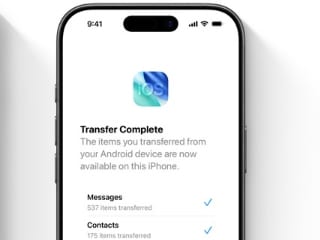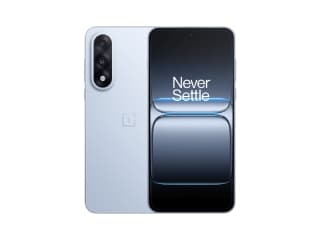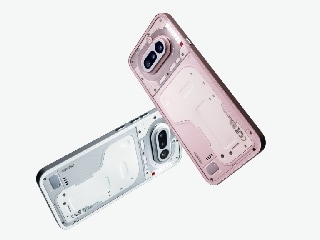- Home
- Social networking
- Social networking News
- Meta Quest Pro Mixed Reality Headset With Outward Facing Cameras, Eye Tracking Sensors Launched: Details
Meta Quest Pro Mixed Reality Headset With Outward Facing Cameras, Eye Tracking Sensors Launched: Details
The new Quest Pro headset will hit shelves on October 25 at a price of $1,500 (roughly Rs. 1,23,400).

The Quest Pro features several upgrades over Meta's existing Quest 2 headset
Meta Platforms unveiled its Quest Pro virtual and mixed reality headset on Tuesday, marking a milestone for Chief Executive Mark Zuckerberg's break into the higher-end market for extended reality computing devices.
The new headset, unveiled at Meta's annual Connect conference, will hit shelves on October 25 at a price of $1,500 (roughly Rs. 1,23,400), and will offer consumers a way to interact with virtual creations overlaid onto a full-colour view of the physical world around them.
The launch is an important step for Zuckerberg, who last year announced plans for the device - then called Project Cambria - at the same time that he changed his company's name from Facebook to Meta to signal his intention to refocus the social media giant into a company that operates a shared immersive computing experience known as the metaverse.
Zuckerberg has since poured billions of dollars into that vision. Reality Labs, the Meta unit responsible for bringing the metaverse to life, lost $10.2 billion (roughly Rs. 83,952 crore) in 2021 and has lost nearly $6 billion (roughly Rs. 49,387 crore) so far this year.
The Quest Pro features several upgrades over Meta's existing Quest 2 headset, which overwhelmingly dominates the consumer virtual reality market.
Most strikingly, it has outward-facing cameras that capture a sort of 3D livestream of the physical environment around a wearer, enabling mixed reality novelties like the ability to hang a virtual painting on a real-world wall or have a virtual ball bounce off a real table.
The Quest 2, by contrast, offers a more rudimentary grayscale version of this technology, called passthrough.
The Quest Pro is lighter and slimmer than its predecessors, with thin pancake lenses and a relocated battery that sits at the back of the headset, distributing its weight more evenly while reducing overall bulk.
For fully immersive virtual reality, Meta has added tracking sensors to the Quest Pro that can replicate users' eye movements and facial expressions, creating a sense that avatars are making eye contact.
Pitching productivity
Meta is pitching the Quest Pro as a productivity device, aimed at designers, architects and other creative professionals.
In addition to offering its own Horizon social and workspace platforms, the company has also made virtual versions of Microsoft work products like Word, Outlook and Teams available.
At a preview of the device days before its launch, Meta gave reporters a glimpse of the type of user it had in mind by showcasing apps like Tribe XR, a virtual training environment for DJs learning how to use complex equipment.
Tribe XR is already available in virtual reality, but a demonstration showed how passthrough technology may enable DJs to use the app to play real-world gigs, as it means they can look out past their virtual equipment at actual partygoers.
Meta plans to sell the Quest Pro in consumer channels to start, while adding enterprise-level capabilities like mobile device management, authentication and premium support services next year, executives said at the press event.
They said the device is intended to complement rather than replace the entry-level Quest 2, which sells for $399.99.
For now, that means the Quest Pro stops short of enabling the complex commercial applications Meta has suggested it wants its metaverse tech to support.
The company is still working on a mixed reality experience for its Horizon Workrooms app that would make a person's avatar appear to be present in a real-world conference room with other users, which it is calling Magic Rooms.
Still, the Quest Pro's price point puts it well under the cost of existing enterprise-focused devices like Microsoft's Hololens 2, which was released for commercial use in 2019 and is already present in operating rooms and on factory floors.
An entry-level Hololens 2 sells for $3,500 (roughly Rs. 2,88,000).
© Thomson Reuters 2022
Get your daily dose of tech news, reviews, and insights, in under 80 characters on Gadgets 360 Turbo. Connect with fellow tech lovers on our Forum. Follow us on X, Facebook, WhatsApp, Threads and Google News for instant updates. Catch all the action on our YouTube channel.
Related Stories
- Samsung Galaxy Unpacked 2026
- iPhone 17 Pro Max
- ChatGPT
- iOS 26
- Laptop Under 50000
- Smartwatch Under 10000
- Apple Vision Pro
- Oneplus 12
- OnePlus Nord CE 3 Lite 5G
- iPhone 13
- Xiaomi 14 Pro
- Oppo Find N3
- Tecno Spark Go (2023)
- Realme V30
- Best Phones Under 25000
- Samsung Galaxy S24 Series
- Cryptocurrency
- iQoo 12
- Samsung Galaxy S24 Ultra
- Giottus
- Samsung Galaxy Z Flip 5
- Apple 'Scary Fast'
- Housefull 5
- GoPro Hero 12 Black Review
- Invincible Season 2
- JioGlass
- HD Ready TV
- Latest Mobile Phones
- Compare Phones
- iQOO 15R
- Realme P4 Lite
- Vivo V70
- Vivo V70 Elite
- Google Pixel 10a
- Tecno Camon 50
- Tecno Camon 50 Pro
- Lava Bold N2
- LG Gram 14 (2026)
- Asus Vivobook 16 (M1605NAQ)
- Infinix Xpad 30E
- Brave Ark 2-in-1
- AI+ Wearbuds
- AI+ NovaWatch Kids 4G
- Xiaomi QLED TV X Pro 75
- Haier H5E Series
- Asus ROG Ally
- Nintendo Switch Lite
- Haier 1.6 Ton 5 Star Inverter Split AC (HSU19G-MZAID5BN-INV)
- Haier 1.6 Ton 5 Star Inverter Split AC (HSU19G-MZAIM5BN-INV)

















